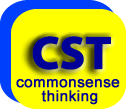

Designed to be fun & develop interest
Build energies & commitment to the course using discovery processes, games and self assessment.
Quickly build an understanding of personal strengths & weaknesses and how individuals see others. Teambuilding exercises to bond the group as a whole. Evaluation of initial team members to ensure well balanced teams for the first week.
Support for students - any concerns with presenting/speaking or unresponsiveness by one to one coaching and feedback
Music, singing, team choirs each morning, adding on complexity, applying techniques from body & mind, (breathing, stature), & from communication (voice control, intonation, actions, intensity, emotion), developing the ‘child within’
Team choirs advance each day, developing techniques and complexity, one team sings and the others ‘answer’.
First Saturday – ‘music’ where a professional musician develops students involvement, fun common/modern easy tunes, adding complexity leading to a grand climax.
Second Saturday – sports & games (hand ball (thrown, need to get into basket, soft football, beach ball using low net and two bounces, bar skittles, british bulldog (pull stuck on tag off students back, dodge the ball, capture the flag (on leaders back), by bum shuffling around only). Everyone chooses the leaders, agree, then leaders choose teams. One point for a loss, two for a draw, three for a win. Main screen shows position.
Party time – at end of day, drinks, some food, sit round large ‘camp fire’ and wind down (taxis laid on for those who have no lift)
Course Structure
Simple & quick discovery processes highlighting aspects of communication, self assessment, personal achievements, goals setting, life skills, body & mind.
Introduction to teams, how they will be used and the leadership & observer roles,
Introduction to enhancing personal communication & teamwork
Introduction to problem solving techniques
Introduction to leadership skills & project management techniques
Introduction to problem identification
Practical idea creation, developing creativity, harnessing what if’s & scenario based planning
Introduction to decision thinking and relevant tools
Introduction to risk assessment & relevant tools
Introduction the theme of efficiency vs technology and man’s continuing progress
Developing team strategies, linking to personal strengths and leadership values
Developing project management using tools for prioritisation, feedback & assessment
Developing the concepts of cost, efficiencies, marginal vs fixed costs
Introduction and improvement of presentation skills
Developing problem solving skills and enhancing problem identification. Using planning and decision thinking tools to help refine objectives and planning propositions.
Introduction to emotional intelligence, introducing ‘the coach’ & ‘red flags’.
Developing leadership skills
Games & Projects
Games - developing understanding of teamwork, problem identification, planning & leadership
Personal feedback with personality strengths – creating interest and developing teamwork & leadership concepts
Quick response questions with summary results, creating individual interest to the questions/views
Games, quick response questions & movement – creating momentum, fast pace and involvement
Projects include the appreciation of costs vs efficiencies, profitability and the paths open to organisations to improve their effectiveness. Man’s overall progress through increasing efficiency. Money, saving, resource management. Projects based on small, medium & large business scenarios & other organisations along with introduction to the desert island model.
Presentations by individuals & teams, developing communication skills, teamwork and timing.
Informal, coffee, in teams but no leaders or observers. Each person must present their favourite discovery plus their most enjoyable bit so far.
Introduction to markets and demographics
Introduction to business drivers, applying drivers to different types of business and organisations
Introduction to project management, purchasing & contracting
Introduction to refined business communication & selling techniques
Understanding & developing contract negotiation skills
Developing business planning skills by applying market and business drivers, differentiated by business type and size
Developing risk assessment and contingency planning
Refining communication and presentation techniques
Applying and further developing decision thinking skills
Introduction to the use of technology to help solve business and other issues
Games & Projects
Complex business and social projects designed to hone decision thinking, planning, teamwork and leadership skills.
Projects that require the application of tools, spreadsheets, presentation aides to develop technical skills
Immersive projects – applying specialist role-play where volunteers/actors play external roles (suppliers, customers, consultants, competitors, researchers) and other internal roles (health & safety, HR dept, managers/bosses).
Games linked to specific projects, role playing and presentation games
Body & mind developing movement & improving relaxation techniques, understanding how to control stress.
Introducing wider media & political issues and how they affect democracy and business issues
Applying decision thinking, costs, efficiencies, saving, debt to other peoples & cultures
Solving complex business and other issues using refined decision thinking, project planning, risk & contingency
Developing ideas for the future use of technology for business and social issues
Applying decision thinking to solving wider political & social issues
Final project – the Klondyke, pulling together many developed skills and abilities within a team environment over an extended period of team-working
Games & Projects - as week 2 plus
Extending the immersive techniques used within projects
Adding complexity / diversity to communication / presentation techniques
Applying complexity to projects by adding social, political and global issues & concepts
Klondyke – 24 hr immersive complex project, pulling together all skills & abilities whilst adding the dimension of working through the night to add additional stress to discover resilience and real-world teams work
Copywrite: John Phillips